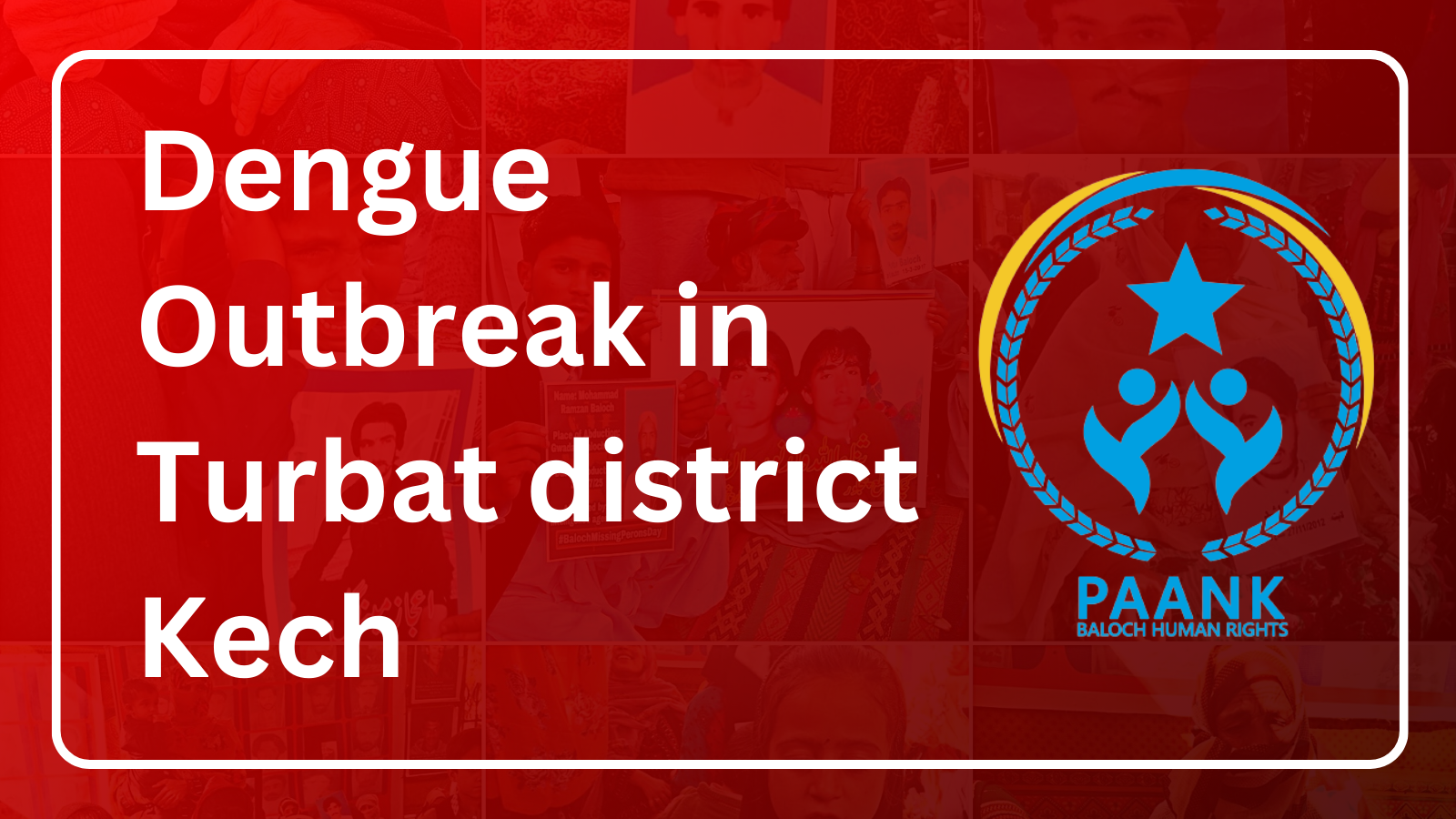The city of Turbat in Kech district is currently facing a severe health crisis due to a devastating outbreak of dengue fever. This outbreak has resulted in the tragic loss of over 14 lives, deeply affecting the entire community. Despite efforts by local authorities, the situation remains dire, exacerbated by inadequate healthcare facilities and a lack of essential resources.
Dengue fever is a mosquito-borne viral illness that presents with flu-like symptoms, including high fever, severe headache, nausea, vomiting, and body aches. In severe cases, it can lead to severe bleeding, organ failure, and death. The disease is transmitted by the Aedes mosquito, which breeds in stagnant water and bites during the day.
Current Situation in Turbat
Turbat, the second largest city in Balochistan with a population of over 500,000, is experiencing a significant surge in dengue cases. Hospitals are overwhelmed, with patients being treated under trees and on the ground due to a shortage of beds. Reports indicate that every second house has two to three dengue patients. The primary healthcare facilities, both public and private, lack adequate medical resources and diagnostic capabilities. Consequently, over 50% of patients are forced to travel to Karachi for treatment. Karachi is approximately 690 kilometers away, and the journey, which takes around 10 hours, is fraught with challenges such as poor road conditions and a lack of proper health emergency centers and rest stops.
Accurate data on dengue-related deaths is challenging to obtain due to the vast and dispersed population of Kech District. Although 14 deaths have been reported, they are not reflected in the official records of the district health department. Dr. Ababgar Baloch, the District Health Officer (DHO) of Kech, stated that no deaths have occurred during treatment in Turbat, attributing the fatalities to cases treated in Karachi or those who died while traveling there.
The individuals who have succumbed to dengue include:
- Karam Dad
- Nako Murad
- Akram Ghulam
- Bachi Abdul Hakeem
- Wali
- Jalil Noor
- Sabzal
- Meherdil
- Alla Dad
- Noor Khatoon
- Lal Baksh
- Sikandar
- Kaboos
Efforts to combat the outbreak include fumigation drives, awareness campaigns, and the distribution of mosquito repellents. However, these measures have not been sufficient to control the virus. The lack of a health emergency declaration in Turbat underscores the urgent need for better medical facilities. The situation is further aggravated by extreme summer temperatures approaching 50 degrees Celsius, combined with inadequate electricity and clean drinking water, which are essential for patient recovery.
Eliminate Breeding Grounds: Regularly clean and cover all water containers, dispose of trash properly, and keep surroundings clean and dry.
Personal Protection: Wear long sleeves and use mosquito repellent to reduce the risk of mosquito bites. Seek medical attention promptly if symptoms of dengue are present.
Government Action: Invest in healthcare infrastructure and resources to manage the current crisis and prevent future outbreaks. This includes establishing reliable diagnostic laboratories and ensuring the availability of effective medicines.
The dengue outbreak in Turbat City is a critical issue requiring immediate action. The loss of over 14 lives highlights the severity of the situation. It is imperative for the community, organizations, and the government to collaborate in combating this outbreak. Through collective effort and proactive measures, Turbat can overcome this health crisis and prevent future occurrences.

